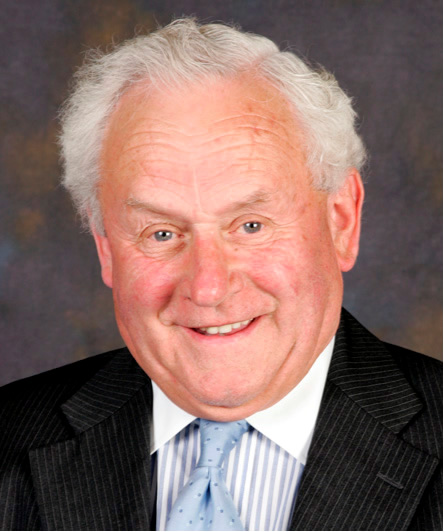
John Retson, the newly appointed chairman of the British Free Range Egg Producers Association, is not alone in his concern that the market could become oversupplied with free range eggs. John Campbell of Glenrath Farms is also worried about the way the market is going and says that the UK could experience surpluses despite the expectations of many analysts that the EU’s ban on conventional cages will cause egg shortages in Europe.
He told the Ranger that Scotland would be producing twice as many eggs as it needed by 2012 – the year that the ban on conventional cages is due to come into force in the EU. He said that as far as wholesalers and packers were concerned, the more supplies they had the more profit they would make, but it was the industry’s job to keep the market under control. He felt it was out of control, with more and more people investing in more egg production.
"The expansion in Scotland has been unbelievable. There is huge commitment to free range – unbelievable commitment – and I am very, very worried that there are going to be too many free range eggs in the UK in 2012."
John felt there could be a shortage of eggs up to 2012, but he was concerned that a surplus would follow in the UK and that would inevitably have an impact on the price paid for eggs. "A packer will take them, but at what price. The whole thing is mad. The whole thing is completely out of balance and I am very concerned for people who are investing all this money," said John. "It could be a bloodbath."

Richard Kempsey of Stonegate also raised concerns about the free range market. "We are certain that the cage market is going to be very positive. That is largely structural, both from a sales point of view and from the rolling replacement into enriched cages, but we are extremely uncertain about the free range market. It is crystal ball gazing, but I do have my concerns about the pullet placement now that the DEFRA figures are out – very big concerns," he said. "With the figures going up from 29.2 to 31 million by the end of March, I think anyone would have concerns about whether this job is going to be overdone on the free range side."
He said that demand was not racing away and per capita consumption was flat, if not declining. "Sales have gone to cheaper value eggs, as you would expect – increasingly so over this last year. You could take the positives. Maybe we are going to be short over the whole lot and we have got to cascade egg, maybe free range is going to come strong because all the retailers are going to stock it and maybe you are going to get an increased processing demand. All of those things are maybe – and that is crystal ball gazing," said Richard. "We are not in the job of sticking our necks out and we would to a degree caution just where we are going during 2010. We need to be talking to prospective people 12 to 18 months out – not at shorter notice – because, like in any market, speculative production will hurt the market."
Stewart Elliott of Eggsell is not convinced that the outlook for the egg market is as gloomy as some people think. "It will be an interesting year with the run-up to 2011 when the birds start going out of battery cages. There may be some over-production this next year, but I think that by the time 2011 comes it will correct itself and go into a deficit situation. We have had times before when everyone has got nervous and then suddenly its foot on the accelerator, then foot on the brake then hard down on the accelerator again." He said that to a large extent farming was always like that.
Andrew Joret of Noble Foods said that packers did need to try to balance supply and demand in the market. "We are expecting good free range growth next year – not just in the retail market, but also some supermarkets are beginning to switch their products to free range – but we have to make sure that we expand free range sensibly so that we don’t ruin the market. I think that we have got to know that when we are expanding we have got a market for those eggs. We want to see the expansion being done sensibly."
Andrew pointed to other issues facing the industry in the coming year. One of the key issues would be the new welfare directive banning conventional cage production. He said the last time that hens could go into conventional cages would be towards the end of 2010 unless a producer wanted to kill a flock early. "The concern to all of us is that whilst we in the UK are going to comply we know that the whole of Europe can’t or won’t comply by 2012. What happens then? Our efforts on lobbying to get this separate number 4 for enriched has got to gather pace in 2010 so that we are ready for 2012," said Andrew.
Another issue he raised was that of beak trimming. "We have done all the research and we are reasonably confident that the legislation will be amended but that is going to be something for us next year. As we stand, by the end of next year beak trimming is banned. The Farm Animal Welfare Council has made a report and it is recommending a deferment for five years. That’s not necessarily what the Government is going to do. That is what the Farm Animal Welfare Council is recommending. We in the industry want a deferment. Five years is probably not enough time for anything practically to happen. Being realistic it should be a deferment for 10 years, not five, and it should not cease at the end of 10 years. There should be a further review at the end of that period to see whether or not you can afford to ban beak trimming or whether we need even more time."
Everyone agrees that 2010 will be a year when the free range egg industry faces up to a number of challenges.
